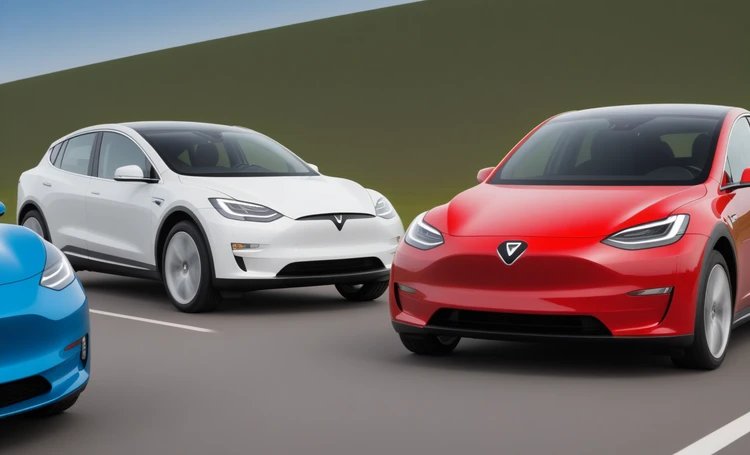🚗⚡ Electric cars vs gasoline cars: battle of the titans
The era of automobiles is undergoing significant changes, and electric vehicles and gasoline cars are at the forefront of this process. This is not just a comparison of two types of vehicles, it is a fight for the future of the automotive industry.
🌍 Ecological aspect
Electric cars:
- Zero Emissions: Electric vehicles produce no harmful emissions, making them an ideal choice for saving the environment.
- Renewable Energy: Capable of charging from renewable energy sources such as solar or wind power.
Gasoline new cars:
- CO2 Emissions: Internal combustion engines produce carbon dioxide, which contributes to global warming.
- Dependence on Oil: The operation and production of gasoline vehicles increases dependence on oil.
💰 Economic side
Electric cars:
- Reduced operating costs: Electric vehicles have fewer moving parts, which reduces maintenance costs.
- Electricity Cost: Charging an electric car is cheaper than filling a gas car.
Gasoline cars:
- High fuel costs: Rising oil prices lead to higher operating costs.
- Regular Maintenance: Gasoline engines require more frequent and expensive maintenance.
🛠 Technology and innovation
Electric cars:
- Advanced technologies: Introducing innovative solutions such as autonomous driving and advanced safety systems.
- Rapid development: Manufacturers are actively investing in the development of new technologies for electric vehicles.
Gasoline cars:
-
Mature technology: Decades of development and optimization have made gasoline vehicles reliable and affordable.
-
Limited Innovation: Innovation in gasoline vehicles is often limited to improving existing technology.
🏎 Design and style
Electric cars:
- Modern Design: With the absence of traditional engines, design eras have more freedom to create a unique look.
- Interior: Modern and technological interiors with an emphasis on minimalism and functionality.
Gasoline cars:
- Classic Look: Many new gasoline cars retain a classic and recognizable design.
- Traditional interior: Equipping the car with traditional controls and tax instruments.
🚘 Production and availability
Electric cars:
- Green Manufacturing: Committed to reducing the carbon footprint at all stages of production.
- Limited Availability: High cost and limited production make electric vehicles less accessible to the general public.
Gasoline cars:
- Mass production: Greater availability thanks to decades of optimized production processes.
- Wide choice: A huge variety of models and configurations to suit every taste and budget.
⚙️ Performance and dynamics
Electric cars:
- Fast Acceleration: Instant torque ensures fast and smooth acceleration.
- Quiet Ride: The absence of an internal combustion engine makes electric vehicles almost silent.
Gasoline cars:
- Power and speed: High power and top speed, especially in sports models.
- Driving Feel: Traditional engines provide a distinct driving experience that is valued by many car enthusiasts.
🌐 Impact on society
Electric cars:
- Raising environmental awareness: The popularization of electric vehicles promotes environmental awareness.
- Changing infrastructure: The growth in the number of electric vehicles is driving the development of charging stations and the renewal of urban infrastructure.
Gasoline cars:
-
Economic Impact: Gasoline vehicles continue to play a significant role in the global economy.
-
Traditions and culture: Gasoline cars remain an integral part of many cultures and traditions.
🛠 Maintenance and care
Electric cars:
- Less Maintenance: The absence of traditional engines and many moving parts reduces the need for regular maintenance.
- Specialized services: The need for specialized service centers for repairs and maintenance.
Gasoline cars:
- Regular Maintenance: The need for regular replacement of oil, filters and other components.
- Wide network of services: A large number of service centers and workshops available for repairs and maintenance.
🌍 Environmental impact
Electric cars:
- Reduced emissions: The absence of exhaust gases directly reduces environmental pollution.
- Dependence on energy sources: The impact on the environment depends on the environmental friendliness of the energy sources.
Gasoline cars:
- High carbon dioxide emissions: Direct contribution to air pollution and the greenhouse effect.
- Oil Dependency: Continued dependence on oil resources and associated environmental risks.
🚀 Future and innovation
Electric cars:
- Innovation in Battery Technology: Continuous improvements in battery technology promise increased range and shorter charging times.
- Development of autonomous driving: Integrating autonomous driving technologies to improve safety and comfort a.
Gasoline cars:
- Hybrid technologies: Development of hybrid systems as an intermediate solution on the path to full electrification.
- Improving Efficiency: Finding ways to improve the efficiency of internal combustion engines.


